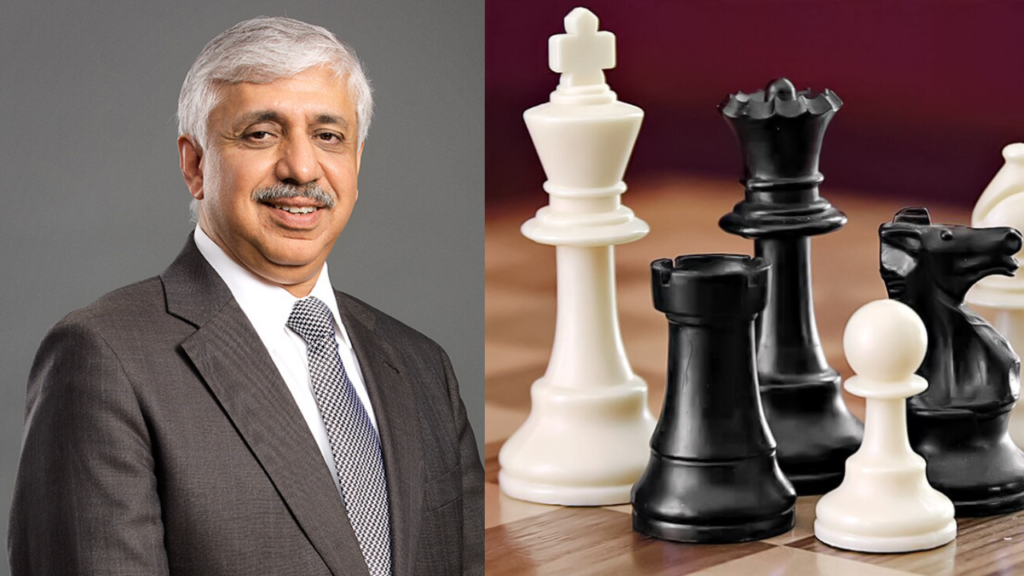-Chanakya Chaudhary, Vice President, Corporate Services, Tata Steel
On July 20, every year, enthusiasts around the world come together to celebrate a game that has endured through centuries and civilizations – chess. World Chess Day, designated by the United Nations and the International Chess Federation (FIDE), commemorates the day of the establishment of FIDE in Paris, 1924. It’s not just a day to appreciate the beauty and intellectual depth of this ancient game, but also a day to underscore the potential of chess as a tool for mental development, social cohesion, and even diplomatic relations.
The origins of chess are historically interwoven with India’s cultural fabric. Originating from an early game called Chaturanga during the Gupta period in Northern India, chess has evolved, leading to over 2,000 identifiable variants today. It eventually spread along the Silk Route west to Persia, the Arabian Peninsula, Byzantium, Europe, and Russia.
Today, chess remains an integral part of India’s soft power and can play a crucial role in bolstering India’s geopolitical position. In addition to exporting the game centuries ago, the strategic acumen demonstrated by Indian chess maestros on the world stage serves as a reflection of India’s intellectual prowess and cultural influence, enhancing our nation’s geopolitical prominence.
India’s pre-eminence in global chess rankings is a testament to the country’s intellectual capital. The consistent high-ranking performances of Grandmasters like Viswanathan Anand, Dommaraju Gukesh, Vidit Gujrathi, Pentala Harikrishna, Arjun Erigaisi, Praggnanandhaa Ramesh, Harika Dronavalli, Koneru Humpy, Rameshbabu Vaishali etc. underscore India’s dominance in this intellectual sport. According to the latest FIDE data, India is ranked third globally with an impressive average rating of 2694 points, as of July 2023. India is emerging as a formidable challenger to traditional chess powerhouses such as the US (2729 pts), Russia (2699 pts) and China (2687 pts).
UN’s push for promoting the game
The UN acknowledges that sports and arts can shift perceptions, overcome prejudices, and inspire people. Among these, chess, one of the oldest and most intellectual games, stands out. It combines elements of sports, scientific thought, and art.
Chess, a globally cherished game, also aligns with the UN’s 2030 Agenda for Sustainable Development. It aids in bolstering education, achieving gender equality, empowering women and girls, and encouraging fairness, inclusion, tolerance, and mutual respect. A concerted push to promote women’s participation in chess is redefining gender dynamics in the sport. The advent of women’s tournaments serves to achieve the UN’s Sustainable Development Goals and exemplifies the breaking of gender stereotypes.
Role of Business conglomerates in Popularising the Game
One significant aspect that is often overlooked is the role that business leaders can play in the globalisation and celebration of chess. Many corporate entities have begun to realise the potential of this cerebral game, not only as a mental exercise for their employees but also as an avenue for community engagement, social responsibility, and global influence.
A prime example of corporate involvement in the chess world can be seen through the initiatives of Tata Steel. The Indian multinational conglomerate has been at the forefront of promoting chess through the organisation of numerous tournaments and activities. The annual Tata Steel Chess Tournament, also known as “Wimbledon of Chess,” held in the Netherlands, has been running for over 80 years, making it one of the oldest chess tournaments in the world.
The Tata Steel Chess India Tournament is a premier global chess event, attracting top grandmasters and rising stars. As a part of the eminent Tata Steel Chess series, it is a competitive platform that fosters skill exhibition and high-stakes competition, allowing both Indian and international players to hone their craft.
In a significant move, Tata Steel Chess India introduced a women’s tournament in its 4th edition in 2022. This initiative is more than just a tournament; it is a step towards empowering women in the chess world, thus creating a more inclusive and diverse environment. Beyond being a competitive battlefield, the event is a celebration of chess, drawing significant audience interest and media coverage.
Businesses can leverage Chess to make a positive impact. There is immense scope for corporations globally to build the game into a globally celebrated sport, similar to what large conglomerates have done for football, basketball, or cricket.
Corporations can offer sponsorships to local, national, and international chess tournaments, thereby creating more opportunities for players. They can encourage chess clubs in schools and communities, promoting the game at a grassroots level. Corporates can also engage in developing chess software, applications, and online platforms to bring the game to the digital native generation. Furthermore, chess can be integrated into corporate social responsibility (CSR) initiatives. By promoting chess, corporations are fostering strategic thinking, problem-solving, and cognitive abilities among individuals, aligning with the educational and developmental goals of CSR.
On World Chess Day, let’s appreciate the game, but let’s also visualise its potential to connect cultures, minds, and corporate strategies. With the right support from global corporations, chess can indeed become a universally celebrated game, transcending physical, digital, and social boundaries.




